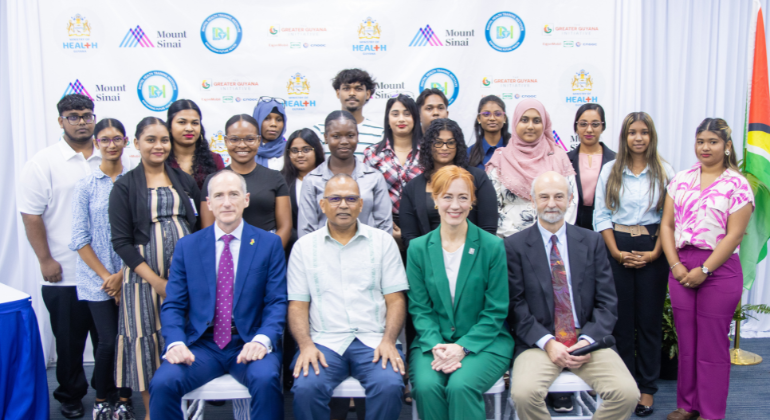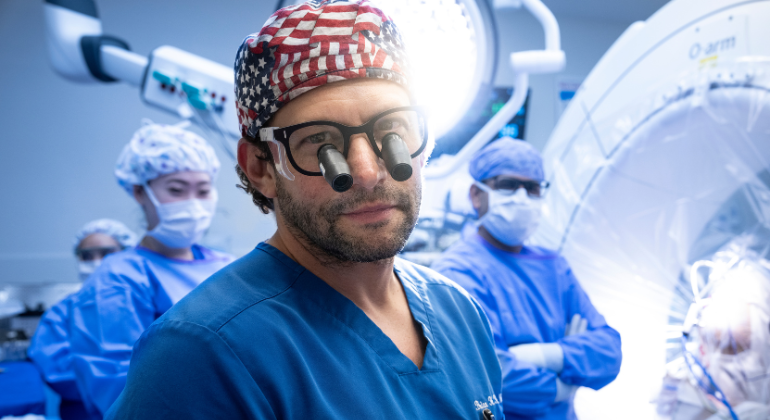Vast Majority of Physicians Practice “Defensive Medicine” According to New Physician Survey
According to Mount Sinai researchers, a vast majority of physicians believe malpractice concerns lead to excessive tests and procedures.
A survey by Mount Sinai School of Medicine researchers has found that 91 percent of physicians believe concerns over malpractice lawsuits result in “defensive medicine,” ordering more tests and procedures than necessary as a protective measure. The study, which questioned 2,416 physicians, is published in the June 28 edition of Archives of Internal Medicine.
A majority of physicians, 90.7 percent, also believe that better protections against unwarranted malpractice suits are needed in order to decrease the ordering of unnecessary medical tests.
"About $60 billion is spent annually on defensive medicine and many physicians feel they are vulnerable to malpractice lawsuits even when they practice competently within the standard of care,” said Tara Bishop, MD, Associate, General Internal Medicine at Mount Sinai School of Medicine, and co-author of the study. “The study shows that an overwhelming majority of physicians support tort reform to decrease malpractice lawsuits and that unnecessary testing, a contributor to rising health care costs, will not decrease without it"
Dr. Bishop, Salomeh Keyhani, MD, MPH, Assistant Professor, Health Evidence and Policy, and Alex Federman, MD, MPH, Assistant Professor, General Internal Medicine, at Mount Sinai School of Medicine, conducted the national survey of physicians from a variety of practice and specialty backgrounds from June 25, 2009 to October 31, 2009.
Physicians were asked to rate their level of agreement to two statements: "Doctors order more tests and procedures than patients need to protect themselves against malpractice suits" and "Unnecessary use of diagnostic tests will not decrease without protections for physicians against unwarranted malpractice suits." Response options were on a five-point scale ranging from "strongly agree" to "strongly disagree." There were no statistically significant differences between sex, geographic location, specialty category, or type of practice.
About The Mount Sinai Medical Center
The Mount Sinai Medical Center encompasses both The Mount Sinai Hospital and Mount Sinai School of Medicine. Established in 1968, Mount Sinai School of Medicine is one of few medical schools embedded in a hospital in the United States. It has more than 3,400 faculty in 32 departments and 15 institutes, and ranks among the top 20 medical schools both in National Institute of Health funding and by U.S. News & World Report. The school received the 2009 Spencer Foreman Award for Outstanding Community Service from the Association of American Medical Colleges.
The Mount Sinai Hospital, founded in 1852, is a 1,171-bed tertiary- and quaternary-care teaching facility and one of the nation’s oldest, largest and most-respected voluntary hospitals. In 2009, U.S. News & World Report ranked The Mount Sinai Hospital among the nation’s top 20 hospitals based on reputation, patient safety, and other patient-care factors. Nearly 60,000 people were treated at Mount Sinai as inpatients last year, and approximately 530,000 outpatient visits took place.
About the Mount Sinai Health System
Mount Sinai Health System is one of the largest academic medical systems in the New York metro area, with 48,000 employees working across seven hospitals, more than 400 outpatient practices, more than 600 research and clinical labs, a school of nursing, and a leading school of medicine and graduate education. Mount Sinai advances health for all people, everywhere, by taking on the most complex health care challenges of our time—discovering and applying new scientific learning and knowledge; developing safer, more effective treatments; educating the next generation of medical leaders and innovators; and supporting local communities by delivering high-quality care to all who need it.
Through the integration of its hospitals, labs, and schools, Mount Sinai offers comprehensive health care solutions from birth through geriatrics, leveraging innovative approaches such as artificial intelligence and informatics while keeping patients’ medical and emotional needs at the center of all treatment. The Health System includes approximately 9,000 primary and specialty care physicians and 10 free-standing joint-venture centers throughout the five boroughs of New York City, Westchester, Long Island, and Florida. Hospitals within the System are consistently ranked by Newsweek’s® “The World’s Best Smart Hospitals, Best in State Hospitals, World Best Hospitals and Best Specialty Hospitals” and by U.S. News & World Report's® “Best Hospitals” and “Best Children’s Hospitals.” The Mount Sinai Hospital is on the U.S. News & World Report® “Best Hospitals” Honor Roll for 2025-2026.
For more information, visit https://www.mountsinai.org or find Mount Sinai on Facebook, Instagram, LinkedIn, X, and YouTube.

Mount Sinai Health System to Roll Out Microsoft Dragon Copilot
Nov 05, 2025 View All Press Releases
NIH Awards $10 Million for the New York Regional Diabetes Research Center
Oct 23, 2025 View All Press Releases




